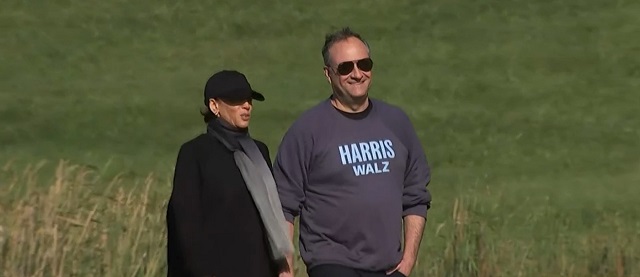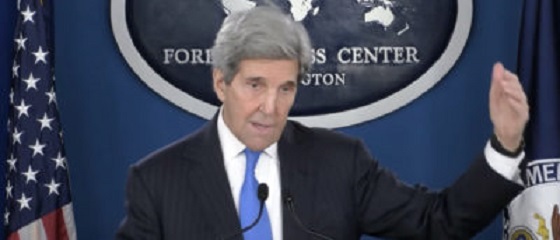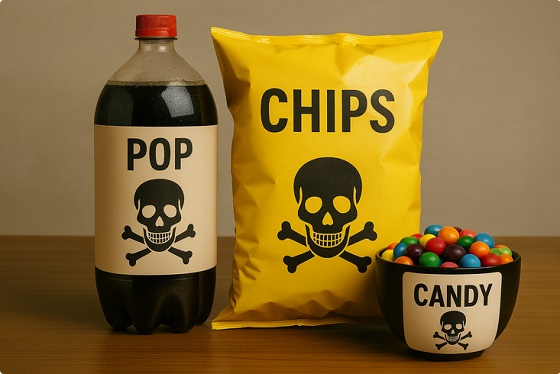Daily Caller
Kamala Harris Would Be A Total Disaster For American Energy

 From the Daily Caller News Foundation
From the Daily Caller News Foundation
By Carla Sands
President Dwight Eisenhower once declared that “pessimism never won any battle.” Yet, many Americans are understandably pessimistic these days.
Families are worried about how to put gas in the tank and food on the table. Most Americans feel that the American Dream is out of reach. As our nation faces mounting challenges, our leaders need to offer a positive vision for our future that Americans can believe in.
The United States is blessed with vast energy resources that can power our economy with affordable, reliable energy. Getting the government out of the way is a good place to start unleashing American energy in a way that will reverberate throughout the economy. This is key to bringing the American Dream back within reach.
Unfortunately, today’s reality is that the Left’s apocalyptic vision of a climate crisis is the kind of pessimism that loses battles. The Biden-Harris administration’s whole-of-government war on energy perpetuates a very bleak vision of our nation’s future.
As the United States regulates hydrocarbon production out of business, our manufacturing jobs move abroad and we become reliant on foreign sources of energy. This not only harms our economic and national security, but these foreign sources also fail to meet our stringent environmental standards for production at home.
Instead of producing abundant American energy, we look to OPEC+ for hydrocarbons and increase our dependence on China for needed critical mineral production. Meanwhile, China emits more greenhouse gasses than all developed nations combined.
The Paris Agreement, which President Joe Biden rejoined, has the United States pay Beijing, even as they continue to increase emissions. At home, American standards of living move backward; the government limits everything from what kind of car we can drive to what kind of stove we can cook on. Air-conditioning and air travel become accessible only to the rich.
This is a far cry from delivering the American Dream and is unpopular with voters. As a result, Vice President Kamala Harris has recently pursued an energy messaging strategy that Reuters has kindly termed “strategically ambiguous” and The Washington Post has deemed “climate silence.”
To those paying attention, the Democrat nominee’s “climate silence” is a deafening contrast to her unambiguous record of commitment to radical climate policies throughout her career.
As a senator, Harris advanced a $10 trillion Green New Deal and even supported removing the filibuster to pass it. As a 2020 presidential candidate, she proudly declared her opposition to fracking. Her current campaign disavowed this position but has failed to explain this shift. When asked in her one sit-down interview, Vice President Harris continued her strategic ambiguity, noting only that her “values haven’t changed.”
And despite public flip-flopping, her record as vice president bolsters the conclusion that her anti-energy bent is consistent. As vice president, she holds a critical role in this administration’s whole-of-government war on energy. She was the tie-breaking vote on the so-called Inflation Reduction Act, which supercharged inflation to give “green” handouts to corporations and pet projects. Yet her nomination acceptance speech failed to mention energy at all and mentioned climate only once in passing. This is a telling omission from the Democrat nominee.
There is a clear logic to hiding the ball as she seeks to appeal to both energy voters in Pennsylvania and her radical climate base. Further, as the Washington Post observed, Vice President Harris’s climate policies contrast with the desire “to paint a rosy picture of the future.”
The Post is correct in calling this pessimistic vision a “lose-lose” messaging issue.
This is because, at its heart, this is a lose-lose policy proposition.
Fortunately, there is a win-win policy that offers both prosperity and environmental protection. We must unleash American energy and allow all energy sources to compete on a level playing field. We must remove burdensome government barriers and allow American ingenuity and free-market principles to drive innovation.
This is positive policy with a proven track record.
In 2019, building on the incredible innovations of the shale revolution and the pro-energy policies of the Trump administration, the United States became a net energy exporter for the first time in nearly 70 years. At the same time, this country had the largest net reduction of energy-related carbon dioxide emissions in the world. Throughout the Trump administration, the United States also reduced air pollution by 7%.
American energy means we can liberate ourselves and our allies from depending on nations like Russia and China. We can protect the environment and improve the lives of Americans.
Put simply, an America First approach to energy means we can embrace the spirit of the American Dream.
This is a realistic policy vision that also paints a brighter picture of our future. Americans deserve clarity, not ambiguity. They deserve the opportunity to achieve the American Dream, starting with energy freedom.
Carla Sands is a former U.S. ambassador to Denmark. She currently serves as vice chair of the Center for Energy & Environment at the America First Policy Institute.
Daily Caller
Tom Homan Predicts Deportation Of Most Third World Migrants Over Risks From Screening Docs


From the Daily Caller News Foundation
White House border czar Tom Homan predicted Sunday the Trump administration will deport the majority of Third World migrants due to vetting challenges.
Two National Guardsmen were shot Wednesday, allegedly by an Afghan national brought into the U.S. under the Biden administration. The attack prompted President Donald Trump to announce in a Thursday post on Truth Social that his administration would “permanently pause migration from all Third World Countries.” Homan said on Fox News’s “Sunday Morning Futures” that Third World nations could not be relied upon to provide accurate information for vetting migrants.
Dear Readers:
As a nonprofit, we are dependent on the generosity of our readers.
Please consider making a small donation of any amount here.
Thank you!
“[T]hese Third World nations, they don’t have systems like we do. So, a lot of these Afghanistans, when they did get here and get vetted, they had no identification at all. Not a single travel document, not one piece of identification,” Homan said. “And we’re going to count on the people that run Afghanistan, the Taliban, to provide us any information [on] who the bad guys were or who the good guys are? Certainly not. And many people need to understand that most terrorists in this world, most of ’em, aren’t in any database.”
“And the same thing with illegal aliens, the over 10 million that came across the border under Joe Biden. There’s no way to vet these people. You think El Salvador or Turkey or Sudan or any of these countries have the databases or system checks that we have?” he added. “Do you think the government[s] of China, Russia, Turkey, do you think they’re going to share that data with us even if they did have it? There’s no way to clearly vet these people 100% that they’re safe to come to this country from these Third World nations.”
The president also wrote in his Thursday post he would “terminate all of the millions of Biden illegal admissions,” along with deporting those who do not offer value to the United States. Homan said Trump is correct to evaluate all migrants who entered under Biden.
“I really, truly think that most of ’em are [going to] end up being deported ’cause we’re not going to be able to properly vet them,” he said.
Similarly, Homeland Security Secretary Kristi Noem asserted Sunday on NBC News’s “Meet the Press” the Trump administration would deport individuals with pending asylum claims.
West Virginia Army National Guard Specialist Sarah Beckstrom, 20, perished Thursday from wounds sustained in Wednesday’s shooting. The other victim, Air Force Staff Sgt. Andrew Wolfe, remains in critical condition at the time of publication.
The shooting was allegedly carried out by Rahmanullah Lakanwal, who entered the country in September 2021 after the U.S. military’s withdrawal from Afghanistan. Lakanwal previously worked with the U.S. government, including the CIA, and was admitted into the U.S. under the Biden administration’s Operation Allies Welcome, which resettled Afghans who had helped American forces.
Lakanwal applied for asylum in 2024, which the Trump administration granted in April 2025, according to Reuters. The alleged gunman shouted, “Allahu akbar!” before opening fire with a revolver, independent journalist Julio Rojas reported.
As of December 2024, over 180,000 Afghans were resettled in the U.S. following its August 2021 withdrawal, according to the State Department. After the shooting, the U.S. Citizenship and Immigration Services (USCIS) announced that the “processing of all immigration requests relating to Afghan nationals” would be paused “indefinitely.”
USCIS also asserted Thursday it would conduct a full-scale reexamination of all green cards granted to individuals from 19 countries “of concern” at Trump’s direction. The agency added in a later statement that, when vetting migrants from those nations, it would weigh “negative, country specific factors,” such as whether the country was able to “issue secure identity documents.”
Daily Caller
John Kerry Lurches Back Onto Global Stage For One Final Gasp


From the Daily Caller News Foundation
John Kerry, one of the grandest and most persistent climate scolds of the 21stcentury, lurched back into the news this week when he was knighted by Britain’s King Charles, a prominent climate scold in his own right.
In fact, their shared efforts involving flying off on carbon-spewing private jets to lecture the masses to live smaller, more costly lives in the name of fighting climate change was the motivation for the award, as the King thanked Kerry for his “services to tackling climate change.” That seems to be a bit of a grammatical error, but when royalty is involved, no one really cares, do they?
“King Charles and I share the same point of view — that there’s an urgency to doing things,” Kerry told the Globe in an interview. “He’s been ahead of most folks on this from the time I can remember… He always had a commitment to nature.”
Unfortunately for the U.K.’s citizens, the Labour government’s “commitment to nature” mainly appears to involve covering thousands of acres of bucolic British farmland with massive solar arrays and felling thousands of forest trees to make home to big wind installations these days.
Projects like those – frequently forced by the central government on objecting rural communities – form the centerpiece of Secretary of State for Energy Security and Net Zero Ed Miliband’s program to deindustrialize the formerly formidable British economy.
That program – based on the shared philosophy of King Charles and Kerry – has sent the U.K.’s utility rates skyrocketing to the highest on earth. It has also rendered the former global power dependent on imports from foreign nations for its energy security, with China the most prominent among them.
Such are the fruits of the King Charles/Kerry “point of view.” Most would agree with Kerry’s statement that “there’s an urgency to doing things.” The problem is that pretty much everything he and the King have been doing in this realm across the first quarter of the 21st century leads inevitably to serfdom to the Chinese Communist Party.
In an interview with the Financial Times the same day, Kerry repeated much of the tiresome dogma of his alarmist religion, in the process excoriating President Donald Trump as a “denier” and calling U.S. corporate leaders cowards for straying from the narrative he and the King prefer. “It is not that they don’t believe [in climate change] or they don’t want to move forward. They are just scared,” Kerry said of the corporate CEOs, adding, “The process of Donald Trump in the last months, coupled with the justice department, coupled with his vengeance programs, has scared… a lot of people.”
But a more believable alternative explanation for the shift away from the twin manias of ESG and DEI by many companies in recent years is that these corporate leaders have a fiduciary duty to maximize returns on capital to their investors. The problem for Kerry and his disciples is that the preferred alternatives they have advanced too often devolved into unprofitable boondoggles that fail to satisfy that duty. Kerry wants to place the entire blame on Trump – who, ironically, was recently honored by King Charles himself with an unprecedented second state dinner. But the truth is that shift started in earnest in 2023, when Joe Biden’s autopen was still in charge of the ship of American state.
That shift has certainly accelerated this year, as companies have been freed from the incessant hectoring of the Biden government and are now being denied access to the ruinous green subsidies from the IRA that so radically distorted energy markets. This has little to do with climate denialism or cowardice and much to do with sound business practice and CEOs properly carrying out the mandates of their high positions. No amount of hyperbolic talking points from Kerry or the King can change that reality.
In the end, Kerry’s remarks come off as a lot of sound and fury signifying nothing. Now in the twilight of his career, he has become a relic, a totem of a fading global religion whose end cannot come soon enough.
David Blackmon is an energy writer and consultant based in Texas. He spent 40 years in the oil and gas business, where he specialized in public policy and communications.
-

 Food23 hours ago
Food23 hours agoCanada Still Serves Up Food Dyes The FDA Has Banned
-

 Daily Caller2 days ago
Daily Caller2 days agoJohn Kerry Lurches Back Onto Global Stage For One Final Gasp
-

 Alberta24 hours ago
Alberta24 hours agoNet Zero goal is a fundamental flaw in the Ottawa-Alberta MOU
-

 Addictions24 hours ago
Addictions24 hours agoManitoba Is Doubling Down On A Failed Drug Policy
-

 National1 day ago
National1 day agoEco-radical Canadian Cabinet minister resigns after oil deal approved
-

 Energy10 hours ago
Energy10 hours agoCanadians will soon be versed in massive West Coast LPG mega-project
-

 Alberta19 hours ago
Alberta19 hours agoKeynote address of Premier Danielle Smith at 2025 UCP AGM
-

 COVID-191 day ago
COVID-191 day agoFDA says COVID shots ‘killed’ at least 10 children, promises new vaccine safeguards




